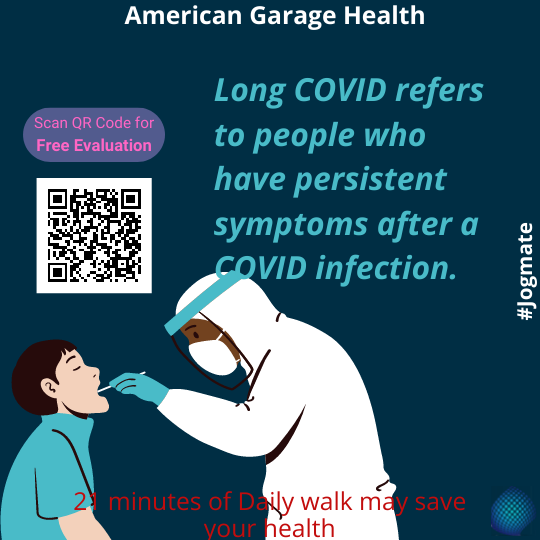Despite the fact that COVID-19's status as a national and public health emergency is about to expire in the US, post-COVID-19 syndrome, often referred to as late COVID, appears to be persisting.

There is more proof now that long COVID may have an impact on the workforce thanks to new studies. According to a survey-based analysis of more than 15,000 persons with past COVID-19. It was published in JAMA Network Open. Those who reported having long-lasting COVID symptoms had a higher likelihood of being unemployed.
A study conducted in October that examined the prevalence of lengthy COVID is built upon by the employment research. The identical US data set from the COVID States Project, an online survey, was used for both studies. Despite its name, the survey asks a broad range of questions about behaviour and views. A lot of it have nothing to do with COVID-19. Moreover, questions on respondents’ social networks and political views are posed.
According to Roy Perlis, MD, MSc, the principal author of both investigations, the survey did not add prejudice regarding the condition. A variety of people answer to the survey, including some who are undecided about COVID-19. Also, the research team was able to form generalisations about the country because each survey wave was carried out across all 50 states and the District of Columbia.
While 15% of respondents with a prior positive COVID-19 test result reported long COVID symptoms, Perlis’ initial study measured pervasiveness. However, he also intended to look into other issues. He was particularly interested in figuring just how long COVID affects one’s capacity to work.
Long COVID & cognition problems
Between February 2021 and July 2022, 8 waves of the survey responses were gathered. It was done at each wave taking place every 4 to 8 weeks.
The 15, 308 respondents were all US citizens between the ages of 18 and 69. Thay all had received a positive COVID-19 test result at least two months prior to the survey. Those who said they were still experiencing symptoms were also asked to tick off a list of 25 symptoms.
Later, the researchers integrated memory loss and mental fog into one variable. Previous studies haven’t paid enough attention to cognitive symptoms that are important for comprehending lengthy COVID.
In total, 2236 individuals, or nearly 15%, claimed to have long-lasting COVID symptoms. Around 12% of people with extended COVID were unemployed, compared to only about 9% of those without the illness.
Long COVID causing unemployment
After adjusting the sociodemographic variables, having a lengthy COVID was still linked to a higher risk of being unemployed. Additionally it meant a lower likelihood of working full-time.
Regarding the cognitive symptoms, over 46% of respondents with lengthy COVID experienced brain fog or memory impairment. This is linked to a lower likelihood of working full-time.
Perlis noted that there was a propensity to ignore these signs. The findings, however, imply that cognitive symptoms are important. This is because they have functional implications. Also, it’s important because they are bothersome to people.
Only around 28% of individuals without lengthy COVID worked full time before the pandemic. This is when compared to almost 40% of those who reported symptoms, when Perlis’ team examined the subset of respondents who were currently jobless. This research demonstrates once again that some persons who were not previously impaired are now disabled.
Conclusion
Those who received a COVID-19 immunisation before to contracting the infection had a decreased probability of experiencing long COVID symptoms. But Perlis hopes that his latest discoveries encourage more attention on extended COVID treatment—rather than just prevention.